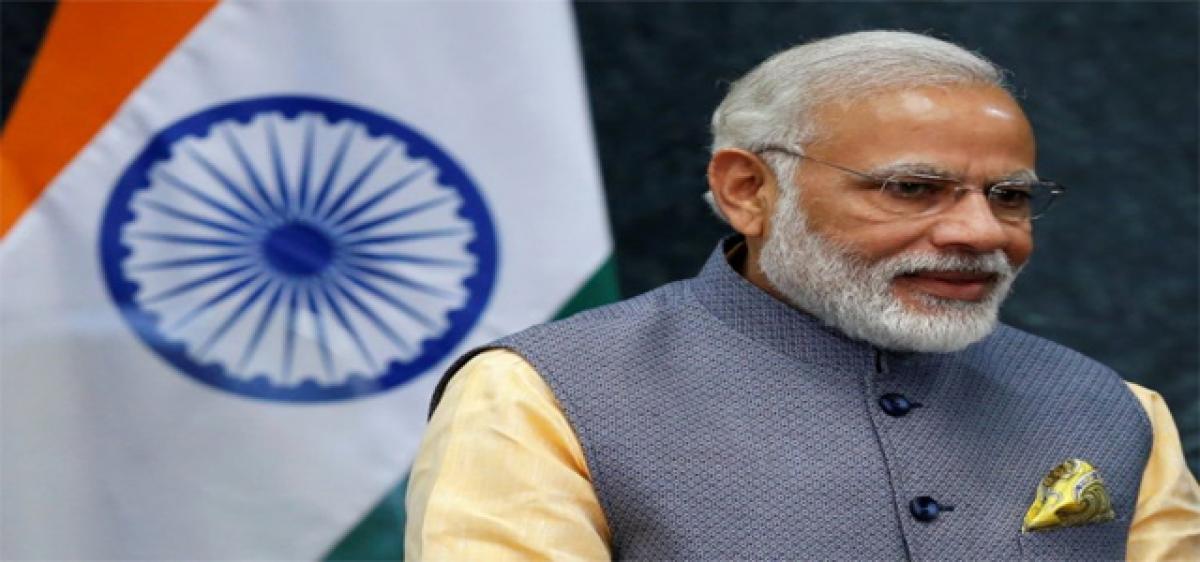Live
- Shreya Ghoshal to perform in 'Tripura Tourism Promo Fest'
- Congress lost its stature as brand, now just a regional party: Kangana
- Abu Dhabi T10: New York Strikers reflect on dominant bowling display in win over Bangla Tigers
- VHP Karnataka Resolves to Oppose Alleged Land Encroachments Under Wakf Board
- Formula 1: Verstappen claims fourth drivers' title as Russell leads Mercedes 1-2 in Las Vegas
- Air quality in Kolkata, Howrah deteriorates
- IPL 2025 Auction: Aim is to make Punjab Kings one of the powerhouses, says head coach Ricky Ponting
- PM Modi to participate in ‘Odisha Parba 2024’ today
- Udupi MLA calls for joint survey to address parking issues
- Villages choke on chemical fumes
Just In

India has become the 62nd nation to ratify the Paris agreement. The Paris agreement was adopted by the parties to the United Nations Framework Convention on Climate Change (UNFCCC) on December 12, 2015 in Paris.
India has become the 62nd nation to ratify the Paris agreement. The Paris agreement was adopted by the parties to the United Nations Framework Convention on Climate Change (UNFCCC) on December 12, 2015 in Paris.
The objective of the agreement is to limit the global rise in temperatures to 1.5 C as compared to the pre-industrial years. But, the environmental activists express concern that the Paris agreement in its present form would not help the world to ensure the rise in global temperatures below 2 degrees.
Now, that India is part of the deal, it should unite the poor and middle income nations to fight for making the progress of Paris agreement just and equitable.
Having no deal is always better than some deal if it is inadequate and half -hearted. But, the hard bargain should not end with the treaty entering into force.
The nations of the world that have compelling imperative to balance between development and green concerns, like India, should leave no stone unturned to get the maximum from the affluent nations that had contributed proportionately more to the global ecological destruction.
India is likely to face undue pressure to revisit its laws and provisions to make them Paris treaty-compliant. The NDA government assured the Parliament that the Paris deal would not be ratified until the national environmental, forest and energy laws are perused in the context of the Paris agreement.
But, no such serious effort seems to have taken place. At the G-20 meet and Seoul energy meeting, India lobbied for the membership of Nuclear Suppliers Group (NSG) to ratify the Paris deal. Notwithstanding such caveats, India finally chose to be part of the deal.
The developed countries have pledged very low emissions cut targets. The developed countries are abdicating their responsibility of cleaning up the environment as the principle is the polluter has to pay.
The affluent nations are primarily responsible for the environmental destruction all these years. This is precisely the reason for insisting on common but differentiated responsibility. But, this differentiated responsibility cannot be insufficient response.
The Centre for Science and Environment has rightly advised that India should strive to bring equity back into the climate agenda. There is still scope for this as the rules for implementation of Paris agreement are yet to be negotiated.
India should bargain for higher emission targets from the richer world besides, seeking more funds and transfer of green technologies.
The energy intensity of Indian economy is still low as per capita energy consumption in India is far less than that of developed nations.
However, India cannot be and is not ignorant of its share of devastation while continuing its efforts to reduce the energy intensity of its economy by improving energy efficiency, shifting to non-fossil fuels etc. India is expected to perform the role of the champion of just and equitable environmental order.

© 2024 Hyderabad Media House Limited/The Hans India. All rights reserved. Powered by hocalwire.com







